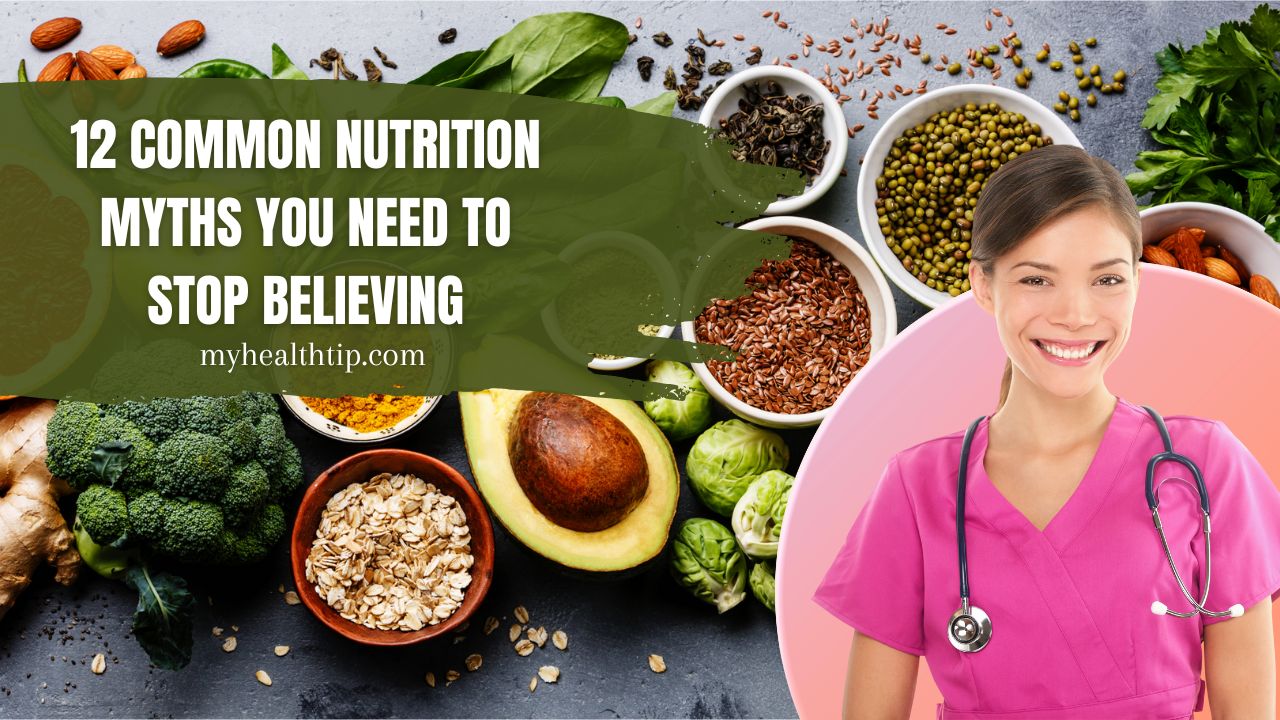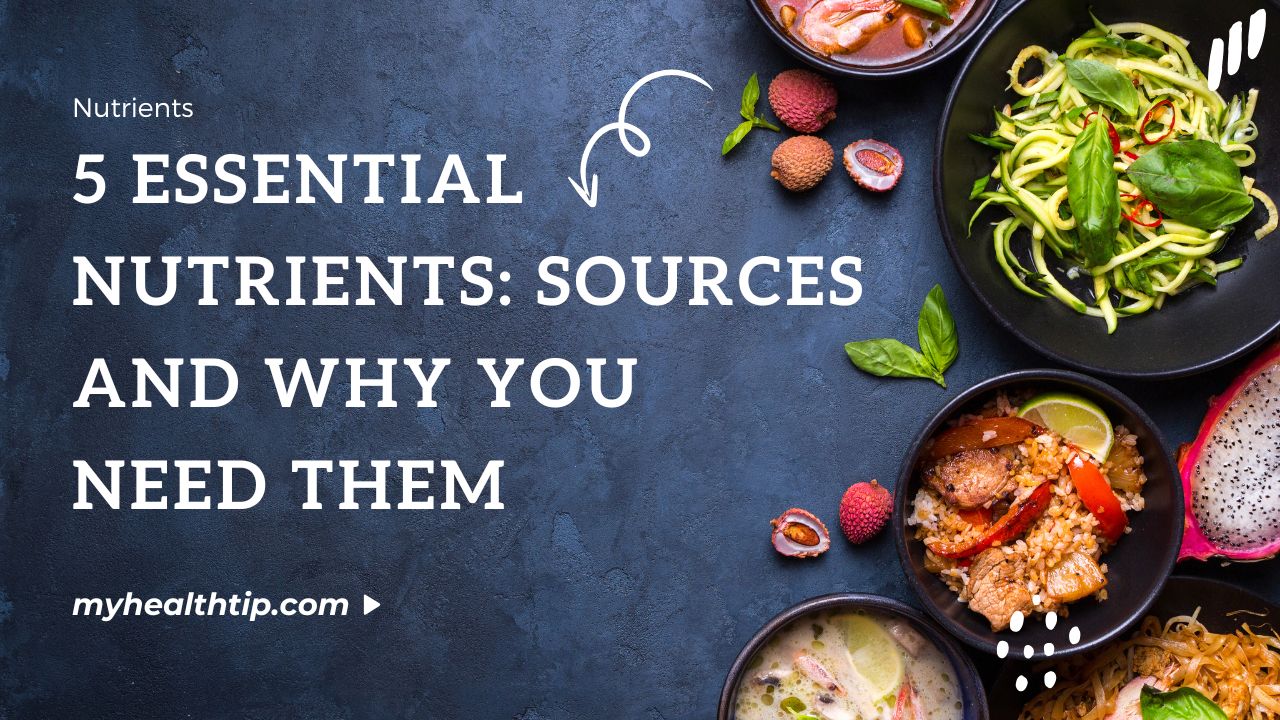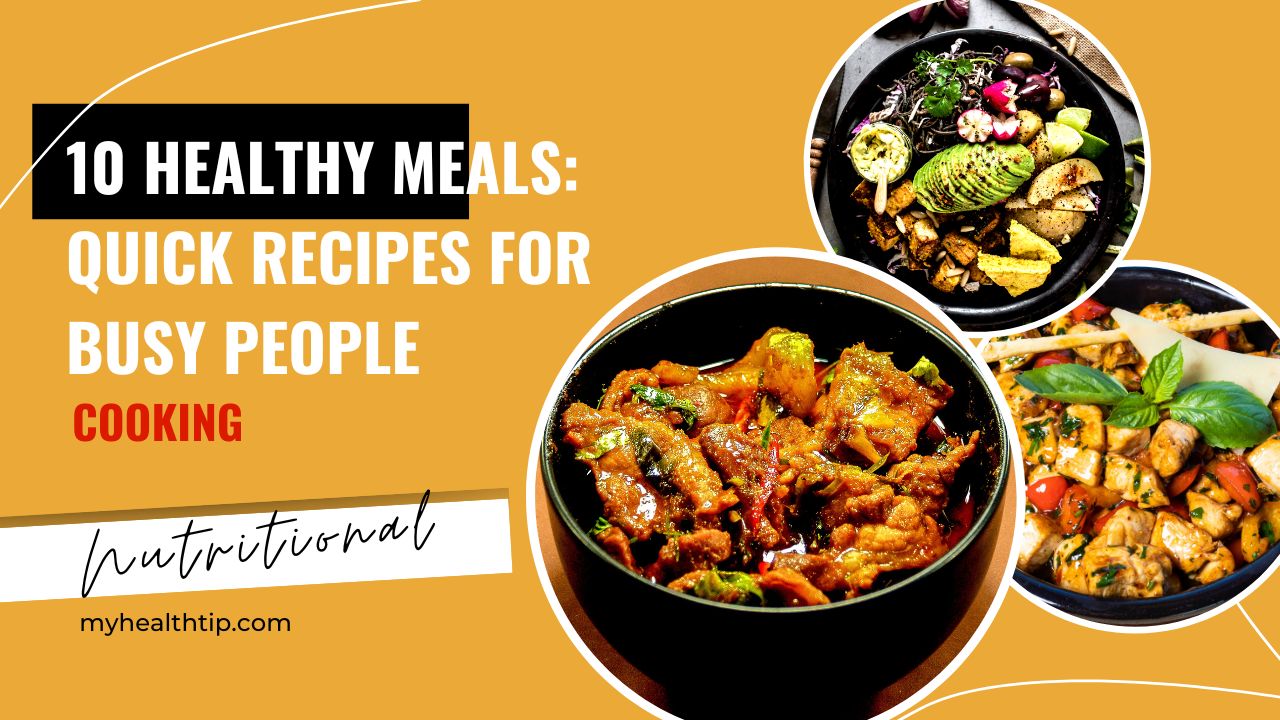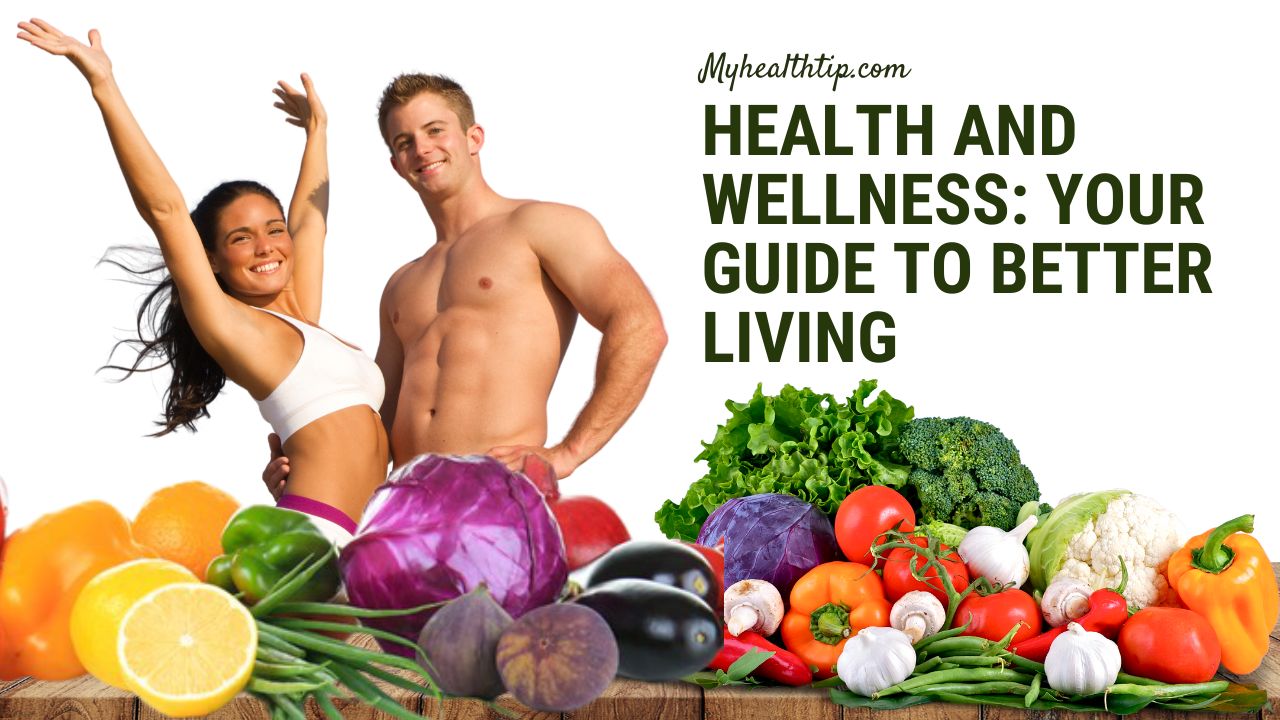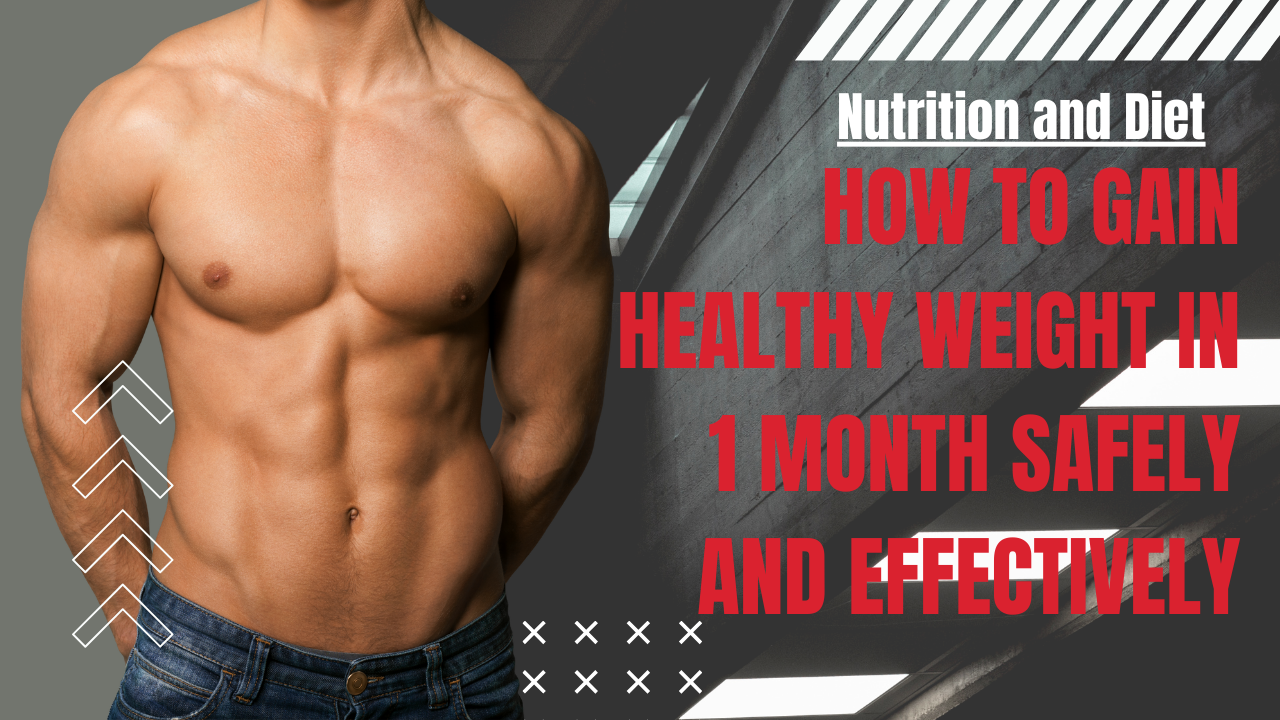When it comes to nutrition, it’s easy to get lost in the sea of information that floods our daily lives. Everywhere you look, there seems to be a new “diet” or “superfood” claiming to have all the answers for a healthier lifestyle. But with so many voices out there, how do you know what’s fact and what’s fiction? Have you ever heard that carbs are the enemy, or that eating fat will make you fat? These are just a couple of the common myths surrounding food and nutrition that have taken root in our culture—and they couldn’t be further from the truth.
In this post, we’re going to break down the most pervasive nutrition myths and provide you with evidence-based insights that will help you make smarter, more informed choices when it comes to what you eat. Whether you’re looking to improve your diet, boost your energy, or simply cut through the noise of contradictory advice, this guide will give you the clarity you need. Let’s separate fact from fiction and explore the real science behind healthy eating. Ready to uncover the truth about nutrition? Keep reading!
Table of Contents
Myth #1: Carbs Are Bad for You
Have you ever heard someone say that carbs are bad for you? That eating bread, pasta, or rice will ruin your health? If you have, you’re not alone—this is one of the most common myths when it comes to nutrition. But the truth might surprise you.
Carbohydrates are often misunderstood, and while it’s true that not all carbs are created equal, they are an essential part of a balanced diet. Here’s why:
Understanding the Role of Carbohydrates
Carbs are your body’s primary source of energy. Your brain, muscles, and organs all rely on glucose, which is produced when you digest carbohydrates. Without carbs, you’d feel sluggish and tired—so it’s important to make them part of your daily food intake. In fact, they should make up about 45-65% of your total daily calories, according to the USDA guidelines.
The Difference Between Simple and Complex Carbs
Not all carbs are the same. Here’s what you need to know:
- Simple Carbs: Found in processed foods and sugary snacks, these carbs are quickly digested and can lead to energy crashes and weight gain when eaten in excess. Think candy, soda, and baked goods.
- Complex Carbs: These are the healthier choice. Found in whole grains, vegetables, and legumes, they’re digested more slowly, providing a steady stream of energy throughout the day. Examples include oats, quinoa, and sweet potatoes.
How Carbs Support Energy and Health
Eating the right kinds of carbs can improve your overall health. Here’s how:
- Sustained Energy: Complex carbs provide a slow-release of energy, helping you stay active and alert throughout the day.
- Digestive Health: Foods like whole grains and beans are rich in fiber, which aids digestion and helps maintain a healthy gut.
- Nutrient-Rich: Many carb-rich foods, such as fruits and vegetables, are packed with essential vitamins, minerals, and antioxidants that support your immune system and overall well-being.
The bottom line? Carbs aren’t the enemy—they’re a crucial part of a healthy, balanced diet. By focusing on whole, unprocessed foods and choosing the right types of carbs, you can fuel your body for the long haul without sacrificing taste or enjoyment.

Myth #2: Eating Fat Makes You Fat
Let’s face it, fat has gotten a bad reputation. We’ve all heard that eating fat will lead to weight gain and poor health. But is it really that simple? In fact, healthy fats are vital for your body’s overall well-being and can even help you maintain a healthy weight.
The Truth About Healthy Fats
Fat is not the villain it’s made out to be. In fact, fats play many important roles in your body:
- Energy Source: Fat is a concentrated source of energy, providing more than double the energy per gram compared to carbs and protein.
- Cellular Function: Healthy fats are key to the structure and function of your cells.
- Nutrient Absorption: Fats help your body absorb fat-soluble vitamins like A, D, E, and K, which are essential for various bodily functions.
Why Your Body Needs Fats for Proper Functioning
Without fat, you would struggle to maintain energy levels and healthy cells. Healthy fats are also crucial for brain health, hormone production, and reducing inflammation in the body.
Distinguishing Between Saturated and Unsaturated Fats
Not all fats are equal. Here’s how to choose wisely:
- Unsaturated Fats: These are the healthy fats that should make up most of your fat intake. Found in foods like avocados, olive oil, nuts, and fatty fish, unsaturated fats are beneficial for heart health.
- Saturated Fats: Found in animal products like butter, cheese, and fatty meats, these fats should be consumed in moderation.
- Trans Fats: These are unhealthy fats found in processed foods. Try to avoid them as much as possible, as they can increase your risk of heart disease.
Remember, eating the right kinds of fat—unsaturated fats in particular—supports your health and can even help with weight loss by keeping you full and satisfied.
Myth #3: You Need to Avoid All Sugar
Sugar—often portrayed as the enemy of healthy living. But is all sugar really bad for you? While it’s true that excessive sugar intake can contribute to weight gain and health problems, the situation is a bit more nuanced.
The Difference Between Natural and Added Sugars
There’s a big difference between naturally occurring sugars and added sugars:
- Natural Sugars: Found in whole foods like fruits, vegetables, and dairy products, these sugars come with fiber, vitamins, and minerals that benefit your health.
- Added Sugars: These are the sugars added to foods during processing or preparation. They’re found in sugary drinks, baked goods, and candy, and contribute to excess calorie intake without providing nutritional value.
How Sugar Affects Your Body and Energy Levels
While natural sugars provide a steady release of energy, added sugars can cause spikes and crashes in blood sugar levels. This can lead to cravings, irritability, and fatigue.
Tips for Moderating Sugar Intake
Here’s how to control your sugar intake without feeling deprived:
- Choose Whole Foods: Opt for whole fruits instead of fruit juices or sugary snacks.
- Read Labels: Be mindful of added sugars hidden in processed foods, often listed as syrups, honey, or fruit concentrates.
- Balance Your Diet: A balanced diet with a variety of nutrients will help prevent excessive sugar cravings.
The key takeaway? Moderation is important. Enjoy natural sugars from whole foods in balance with a well-rounded diet.
Myth #4: Protein Supplements Are Essential for Muscle Growth
Protein supplements have become a go-to for anyone looking to build muscle, but are they really necessary? The truth is, most people can get enough protein from their diet without the need for powders or shakes.
Whole Foods vs. Protein Powders
Protein is essential for muscle repair and growth, but you don’t need to rely on supplements to meet your needs. In fact, whole foods like chicken, fish, eggs, and legumes provide all the protein your body needs, along with additional nutrients that supplements lack.
How Much Protein Do You Really Need?
Most people don’t need to obsess over protein intake. For the average person, consuming about 0.8 grams of protein per kilogram of body weight is sufficient. If you’re active or trying to build muscle, you may need more, but the best way to meet your protein needs is through food, not supplements.
The Best Sources of Protein for Fitness and Health
Here are some of the best sources of protein:
- Lean meats: Chicken, turkey, and lean cuts of beef.
- Fish and seafood: Salmon, tuna, and shrimp.
- Plant-based proteins: Beans, lentils, tofu, and quinoa.
Remember, a varied diet with a focus on whole foods will support your muscle growth and overall health more effectively than relying on protein supplements.
Myth #5: Gluten-Free Is Always Healthier
Many people swear by gluten-free diets, but does going gluten-free actually make you healthier? For those with gluten sensitivity or celiac disease, gluten-free foods are essential. But for others, avoiding gluten may not provide the health benefits they expect.
What Gluten Is and Who Should Avoid It
Gluten is a protein found in wheat, barley, and rye. While most people can tolerate gluten without issue, those with gluten sensitivity or celiac disease need to avoid it to prevent digestive issues and more serious health problems.
The Potential Downsides of Going Gluten-Free
For those without gluten intolerance, cutting gluten from your diet can actually be detrimental. Gluten-free products are often highly processed and lack the fiber and nutrients found in whole grains.
Finding Balance in Your Diet
If you don’t have a gluten sensitivity, there’s no need to avoid gluten altogether. Instead, focus on eating whole grains, fruits, vegetables, and lean proteins, which provide all the nutrients your body needs for optimal health.

Myth #6: Detox Diets Are Necessary for Health
We’ve all seen the ads for detox cleanses and juice diets promising to rid your body of toxins, but do they really work? Your body is perfectly capable of detoxing itself without the need for extreme diets or expensive supplements.
What “Detox” Really Means
“Detox” is a marketing term often used to sell products that claim to cleanse your body. But the truth is, your liver, kidneys, and digestive system are already doing this job efficiently, without the need for special diets or cleanses.
How Your Body Detoxifies Naturally
Your body constantly works to eliminate toxins through sweat, urine, and feces. A healthy liver and kidneys filter out waste, while antioxidants in your diet support your body’s natural detox processes.
The Risks of Overdoing Detox Diets
Extreme detox diets can disrupt your metabolism, deprive your body of essential nutrients, and lead to energy crashes. Instead of focusing on cleanses, aim for a balanced diet with plenty of whole foods, fiber, and water.
Myth #7: Low-Fat and Fat-Free Foods Are Always Healthier
It’s easy to assume that low-fat and fat-free foods are healthier, but this isn’t always the case. In many instances, these products are loaded with sugars, preservatives, and artificial ingredients to make up for the flavor and texture lost when fat is removed.
The Hidden Sugars and Additives in Low-Fat Products
Low-fat foods often contain added sugars and chemicals to make them more palatable, which can actually make them less healthy. These added ingredients can contribute to weight gain, blood sugar spikes, and other health issues.
Understanding the Role of Fat
in Satiety and Nutrient Absorption Fat is crucial for keeping you full and satisfied. It also helps your body absorb important nutrients from food. When you cut fat completely, you may end up overeating other foods to compensate.
Choosing the Right Fats for Health
Instead of opting for low-fat foods, focus on healthy fats like those found in avocados, olive oil, nuts, and seeds. These fats support heart health and help maintain a balanced diet.
Myth #8: You Have to Eat Six Small Meals a Day to Lose Weight
Many people believe that eating six small meals a day will speed up metabolism and help with weight loss. However, the truth is that meal frequency doesn’t matter as much as what and how much you eat.
The Truth About Meal Frequency and Weight Loss
There’s no magical number of meals you should eat. What really matters is the quality of your food and the total number of calories you consume. Eating three well-balanced meals a day may be just as effective as eating six smaller meals.
Quality Over Quantity: Focusing on Nutrients
Instead of focusing on meal frequency, prioritize nutrient-dense foods that nourish your body. Whole grains, lean proteins, fruits, and vegetables will keep you satisfied and energized, no matter how often you eat.
How Intermittent Fasting Can Work for Some
Intermittent fasting, which involves restricting eating to certain time windows, has become popular for its potential benefits in weight management. This approach can work for some people, but it’s important to listen to your body and find a routine that suits your lifestyle.
Myth #9: All Calories Are Created Equal
It’s easy to think that all calories are the same, but the truth is more complex. The source of your calories matters just as much as the number of calories you consume.
Why Nutrient Density Matters More Than Caloric Content
A calorie from an apple is not the same as a calorie from a sugary snack. Nutrient-dense foods, like fruits, vegetables, whole grains, and lean proteins, provide essential vitamins, minerals, and fiber that support your body’s health, while empty calories from processed foods offer little to no nutritional benefit.
The Difference Between Empty Calories and Nutrient-Rich Foods
Empty calories come from foods that are high in sugar and low in nutrients. These foods may fill you up temporarily, but they won’t provide your body with the energy it needs for long-term health.
How to Make Calories Work for Your Health Goals
Focus on whole, nutrient-dense foods that fuel your body and help you meet your health goals. Balance your meals with a variety of food groups to ensure you’re getting the nutrition you need while managing your caloric intake.
Myth #10: You Should Avoid Red Meat Completely
Red meat often gets a bad rap, but is it all bad? The answer is more nuanced. While it’s true that excessive consumption of red meat can contribute to health issues, moderate amounts of lean red meat can still be part of a balanced diet.
The Nutritional Benefits of Lean Red Meat
Lean cuts of red meat, like sirloin and tenderloin, are rich in protein, iron, zinc, and B vitamins—all essential nutrients for overall health. Iron from red meat is particularly important for those at risk of iron deficiency anemia.
The Importance of Portion Control and Balance
The key to including red meat in a healthy diet is portion control. Stick to small portions, and pair them with plenty of vegetables, whole grains, and other nutrient-dense foods.
Healthier Ways to Prepare Red Meat
Grilling, broiling, or baking lean cuts of red meat is a healthier way to enjoy it without added fat. Avoid frying or cooking with excess oil, and opt for herbs and spices to add flavor without extra calories.
Myth #11: You Can Out-Exercise a Poor Diet
The idea that you can eat anything and just “work it off” at the gym is a common myth. While exercise is essential for good health, diet plays a much larger role in weight loss and overall fitness.
The Relationship Between Nutrition and Exercise
Your body needs the right nutrients to fuel your workouts and support recovery. Without proper nutrition, you may not have the energy to perform well, and you might even hinder your progress.
Why Diet Is Key to Reaching Fitness Goals
If you want to lose weight, gain muscle, or improve your overall health, diet will play a bigger role than exercise alone. Focus on nutrient-dense foods that support your fitness goals.
Finding the Right Balance for Long-Term Health
Exercise and diet go hand-in-hand. By maintaining a balanced approach to both, you’ll improve your fitness and well-being over time.

Myth #12: Organic Food Is Always Healthier
Organic food is often considered the healthier choice, but is it always better than conventional food? Not necessarily.
What Makes Food “Organic”?
Organic foods are grown without synthetic pesticides, fertilizers, or genetically modified organisms (GMOs). While they may have fewer chemical residues, they’re not necessarily more nutritious than conventionally grown foods.
The Benefits of Organic vs. Conventional Foods
Organic foods can reduce your exposure to pesticides and support sustainable farming practices. However, conventional produce can still offer significant nutritional benefits and is often more affordable.
When Organic Is Worth the Extra Cost
If you’re concerned about pesticide exposure or supporting organic farming, buying organic can be a good choice for certain items, like leafy greens or strawberries. However, for other foods, such as potatoes or bananas, the extra cost may not be necessary. Choose organic when it matters most for your health and budget.
Conclusion: Debunking Nutrition Myths for Better Health
By now, you’ve learned how many of the nutrition myths we’ve been led to believe simply aren’t true. Whether it’s the misconception that carbs are the enemy, the fear of eating healthy fats, or the belief that you need to avoid sugar completely, we’ve debunked these myths and replaced them with facts you can rely on.
But here’s the question: how will you use this newfound knowledge? Will you continue following outdated nutrition advice, or are you ready to make more informed, healthier choices in your everyday life? The power is in your hands.
The truth is, nutrition isn’t a one-size-fits-all approach. It’s about balance, making smarter food choices, and listening to your body. From embracing complex carbs and healthy fats to moderating sugar intake, small but impactful changes can make a world of difference.
As you move forward, remember that food isn’t just fuel—it’s an opportunity to nourish your body and support long-term health. So, take what you’ve learned here and apply it to your daily routine. Not only will it help you feel better, but it will also empower you to make decisions that align with your health goals.

